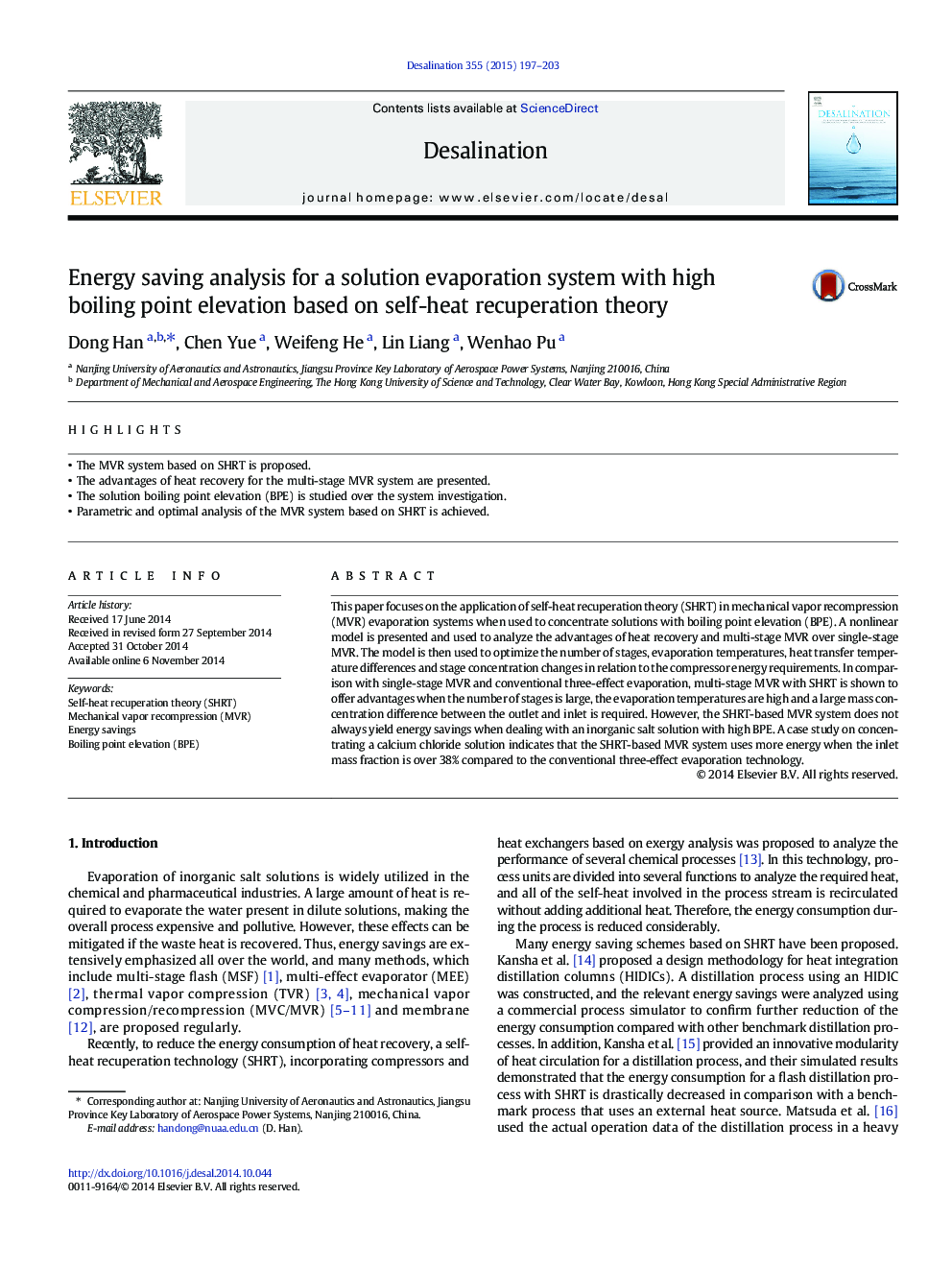| کد مقاله | کد نشریه | سال انتشار | مقاله انگلیسی | نسخه تمام متن |
|---|---|---|---|---|
| 623223 | 1455340 | 2015 | 7 صفحه PDF | دانلود رایگان |
• The MVR system based on SHRT is proposed.
• The advantages of heat recovery for the multi-stage MVR system are presented.
• The solution boiling point elevation (BPE) is studied over the system investigation.
• Parametric and optimal analysis of the MVR system based on SHRT is achieved.
This paper focuses on the application of self-heat recuperation theory (SHRT) in mechanical vapor recompression (MVR) evaporation systems when used to concentrate solutions with boiling point elevation (BPE). A nonlinear model is presented and used to analyze the advantages of heat recovery and multi-stage MVR over single-stage MVR. The model is then used to optimize the number of stages, evaporation temperatures, heat transfer temperature differences and stage concentration changes in relation to the compressor energy requirements. In comparison with single-stage MVR and conventional three-effect evaporation, multi-stage MVR with SHRT is shown to offer advantages when the number of stages is large, the evaporation temperatures are high and a large mass concentration difference between the outlet and inlet is required. However, the SHRT-based MVR system does not always yield energy savings when dealing with an inorganic salt solution with high BPE. A case study on concentrating a calcium chloride solution indicates that the SHRT-based MVR system uses more energy when the inlet mass fraction is over 38% compared to the conventional three-effect evaporation technology.
Journal: Desalination - Volume 355, 1 January 2015, Pages 197–203
